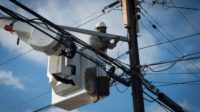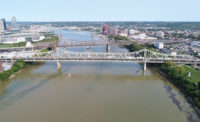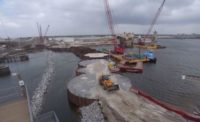The National Oceanic and Atmospheric Administration plans to invest $752 million to boost its research infrastructure and make $575 million in grants available for coastal resilience projects. The agency's plans are part of the framework for $2.6 billion allocated from the Inflation Reduction Act for programs to protect coastal communities and marine resources, officials said June 6.
“More than ever, communities across the country are facing the realities of climate change and extreme weather, whether it’s from prolonged drought, hazardous flooding, or widespread heatwaves,” agency Administrator Rick Spinrad told reporters during a press call. “Since January, there have been a record-setting seven disasters that have totaled $1 billion or more each in damages, highlighting the profound economic and social impacts of more frequent and costly climate and extreme weather events.”
U.S. Secretary of Commerce Gina Raimondo told added that the new grant program, using $575 million from the law, will support climate resilience in coastal communities, including projects to protect them from extreme storms. The competitive program will focus on collaborative approaches at a regional scale.
“We have found over the past few years that these regional competitions are an incredibly effective way to mobilize a whole community,” Raimondo said. “We get the most effective use of federal government resources.” Dept. of Commerce officials say more details about that program will be released this summer.
The separate $752 million in funding is for various “critical infrastructure projects necessary to maintain NOAA’s mission,” said Spinrad. Those include improvements to facilities such as the Northwest Fisheries Science Center in Seattle; the James J. Howard Marine Sciences Lab in New Jersey; piers in Newport, R.I., and Charleston, S.C.; and six national marine sanctuaries. Some funding also is planned for research vessels and aircraft, he added.
Smaller pieces of the $2.6 billion are planned for workforce training focused on jobs that enhance climate resilience, tribes’ fish habitat restoration priorities and fisheries conservation. Sen. Maria Cantwell (D-Wash.) said those could include projects such as dam removals and construction of culverts to ensure salmon migration routes.






Post a comment to this article
Report Abusive Comment